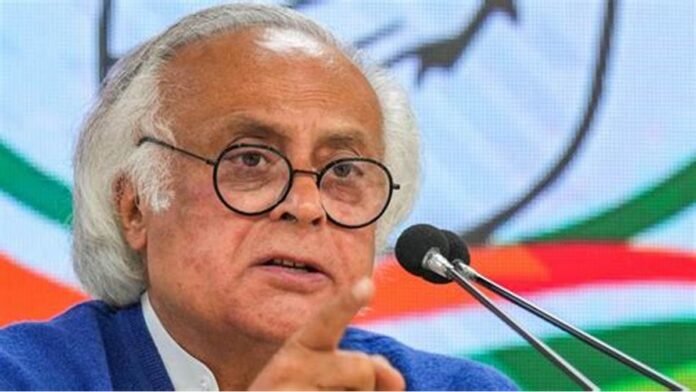Senior Congress leader Jairam Ramesh recently accused the Prime Minister of neglecting the crisis in Manipur while prioritizing other engagements. Ramesh’s remarks come at a time when the northeastern state of Manipur is grappling with significant socio-political unrest, and his comments have reignited a political debate on the central government’s handling of regional issues.
Jairam Ramesh, known for his forthright opinions, targeted PM Modi in a series of tweets and public statements, highlighting what he perceives as a lack of attention and action towards Manipur’s escalating situation. He pointed out that the Prime Minister has been actively involved in numerous other activities, from international trips to election campaigns, but has seemingly sidestepped the pressing issues in Manipur. “The Prime Minister has time for everything – foreign trips, election rallies, launching projects – but no time to address the burning issues in Manipur,” Ramesh stated.
The northeastern state has been facing a multitude of challenges, including ethnic tensions, insurgency, and economic instability. These problems have been compounded by recent incidents of violence and unrest, which have disrupted normalcy and threatened the peace in the region. The people of Manipur have been appealing for greater intervention and support from the central government, but according to Ramesh, these appeals have largely gone unheard.
Ramesh’s criticism also touches upon the broader issue of how northeastern states are perceived and treated by the central government. He argues that there is a persistent neglect and a lack of understanding about the unique challenges faced by these states. “It is high time the central government realizes that the northeastern states are an integral part of India and deserve the same attention and resources as any other region,” Ramesh asserted.
The Congress leader’s comments have sparked a strong response from the Bharatiya Janata Party (BJP). Party spokespersons have defended the Prime Minister, asserting that the central government has been proactive in addressing the issues in Manipur. They cite various development projects and security initiatives aimed at improving the situation in the state. BJP leaders argue that the criticism from Congress is politically motivated and overlooks the substantial efforts made by the Modi government to bring stability and development to the region.
Despite the BJP’s defense, the situation in Manipur remains dire. Ethnic clashes between different communities have led to numerous casualties and displaced thousands of people. The ongoing violence has disrupted daily life, with curfews and internet shutdowns becoming frequent measures to curb unrest. Economic activities have been severely impacted, leading to a further decline in the living standards of the people.
Civil society organizations and local leaders in Manipur have been vocal about the need for a more sustained and empathetic approach from the central government. They emphasize the importance of dialogue and engagement with all stakeholders to address the root causes of the conflict. There is a growing sentiment that mere administrative measures are insufficient and that there needs to be a comprehensive political solution.
Jairam Ramesh’s critique also brings to light the larger issue of how national leadership prioritizes its engagements. In a country as diverse and vast as India, regional issues often get overshadowed by national and international agendas. Ramesh’s comments underscore the need for a balanced approach that ensures regional crises receive adequate attention and resources.
The situation in Manipur is a reminder of the fragile peace in many parts of India, where underlying tensions can quickly escalate into significant unrest. The central government’s role in such scenarios is crucial, not just in terms of providing immediate relief and security, but also in fostering long-term solutions that address the socio-economic and political factors at play.
In addition, Jairam Ramesh’s pointed remarks about Prime Minister Modi’s alleged neglect of Manipur have stirred a crucial debate about the central government’s priorities and responsibilities. As Manipur continues to grapple with its challenges, the call for more focused and empathetic intervention from the highest levels of government grows louder. The unfolding situation demands not only immediate attention but also a deeper commitment to understanding and resolving the complex issues that plague the state.


